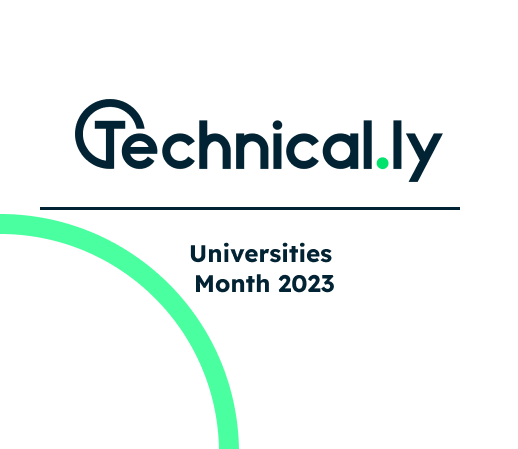For more than a decade, students at both the University of Maryland, Baltimore and the University of Maryland, College Park have used the America’s Got Regulatory Science competition to develop tools, standards and approaches to assess the safety, efficacy, quality and performance of products regulated by the Food and Drug Administration (FDA).
Come next month, winners of the 11th annual iteration of this competition — which took place in February at the state university system’s School of Pharmacy in Baltimore — will get to visit the FDA’s Office of Regulatory Science and Innovation (ORSI). This year’s winners of the competition, hosted by the University of Maryland Center of Excellence in Regulatory Science and Innovation (M-CERSI), came from the system’s School of Medicine (UMSOM).
Known as the “Clinical Lab Scientists,” this group of graduate students emerged from an octet of competing teams whose presentations covered topics like drugs, devices, apps, tobacco products and AI — all with the intersection of how products relevant to these subjects can help improve public health.
Lessons from Theranos
Clinical Lab Scientists proposed strengthening the regulatory oversight of laboratory-developed tests (LDTs) — a classification of medical devices the FDA lightly regulates. The team drew inspiration from Theranos, the health technology company that infamously falsely marketed advanced blood tests as LDTs.
“We’re trying to see how the FDA can become more involved, gain more regulatory oversight and prevent issues like Theranos and noncompliance in the laboratory area,” said Diran Dasi, who captained the team alongside fellow UMSOM’s Department of Medical and Research Technology grad students Marilyn Bekima, Rebecca Collins and Peyton Liebhardt.
“It came as a pleasant surprise to win,” added Bekima. “It just shows the importance of laboratory science. There are more tech companies trying to get into the quick diagnosis of laboratory tests. We want to make sure laboratory-developed test regulation is really taken seriously.”
Second place went to MagiKRx, a team of Ph.D. and MS students in the School of Pharmacy’s Pharmaceutical Health Services Research graduate program; the team included John Rizk, Godwin Okoye, Udim Damachi and Bernard Bright K. Davies-Teye. MagiKRx presented the idea of a web-based app to improve diversity and real-world evidence generation for a newly approved Alzheimer’s disease drug.
Coming in third was NociRx, an app intended for older adults that checks for drug-drug interactions between current prescriptions and over-the-counter analgesics. NociRx’s team featured four Doctor of Pharmacy program students: Mehak Muneer, Urooba Ali, Nan Esi Bray and Naiha Muneer.
FDA pathways
All three winning teams will learn from and interact with staffers at the FDA, headquartered near DC in Silver Spring, Maryland. Five FDA staff scientists served as judges for this year’s contest.
“The competition inspires and challenges students to tap into their imagination and potential to offer innovative solutions to challenging issues in regulatory science,” said Tracy Chen, toxicology advisor at the FDA’s Office of the Chief Scientist.
“The competition enables collaboration and mentorship by FDA scientists, aligns with the FDA’s public health mission and provides students with a platform to consider and pursue future career opportunities in regulatory science,” added Tina Morrison, director of the ORSI.
Although the exact nature of these student winners’ future collaboration with the FDA remains unknown, the competition’s leadership is resolute about how much America’s Got Regulatory Science Talent helps students tap into a lesser-known aspect of public health policy.
“This event is one of my favorite activities with students,” said James Polli, M-CERSI’s codirector and an endowed chair in the School of Pharmacy. “Students from a variety of disciplines take time to become more familiar with regulatory science, an area that will probably play a very important role in their future careers.”

This guest post is a part of Universities Month 2023 in Technical.ly’s editorial calendar.
Before you go...
Please consider supporting Technical.ly to keep our independent journalism strong. Unlike most business-focused media outlets, we don’t have a paywall. Instead, we count on your personal and organizational support.
3 ways to support our work:- Contribute to the Journalism Fund. Charitable giving ensures our information remains free and accessible for residents to discover workforce programs and entrepreneurship pathways. This includes philanthropic grants and individual tax-deductible donations from readers like you.
- Use our Preferred Partners. Our directory of vetted providers offers high-quality recommendations for services our readers need, and each referral supports our journalism.
- Use our services. If you need entrepreneurs and tech leaders to buy your services, are seeking technologists to hire or want more professionals to know about your ecosystem, Technical.ly has the biggest and most engaged audience in the mid-Atlantic. We help companies tell their stories and answer big questions to meet and serve our community.
Join our growing Slack community
Join 5,000 tech professionals and entrepreneurs in our community Slack today!

The person charged in the UnitedHealthcare CEO shooting had a ton of tech connections

Delaware students take a field trip to China using their tablets and ChatGPT

From rejection to innovation: How I built a tool to beat AI hiring algorithms at their own game



